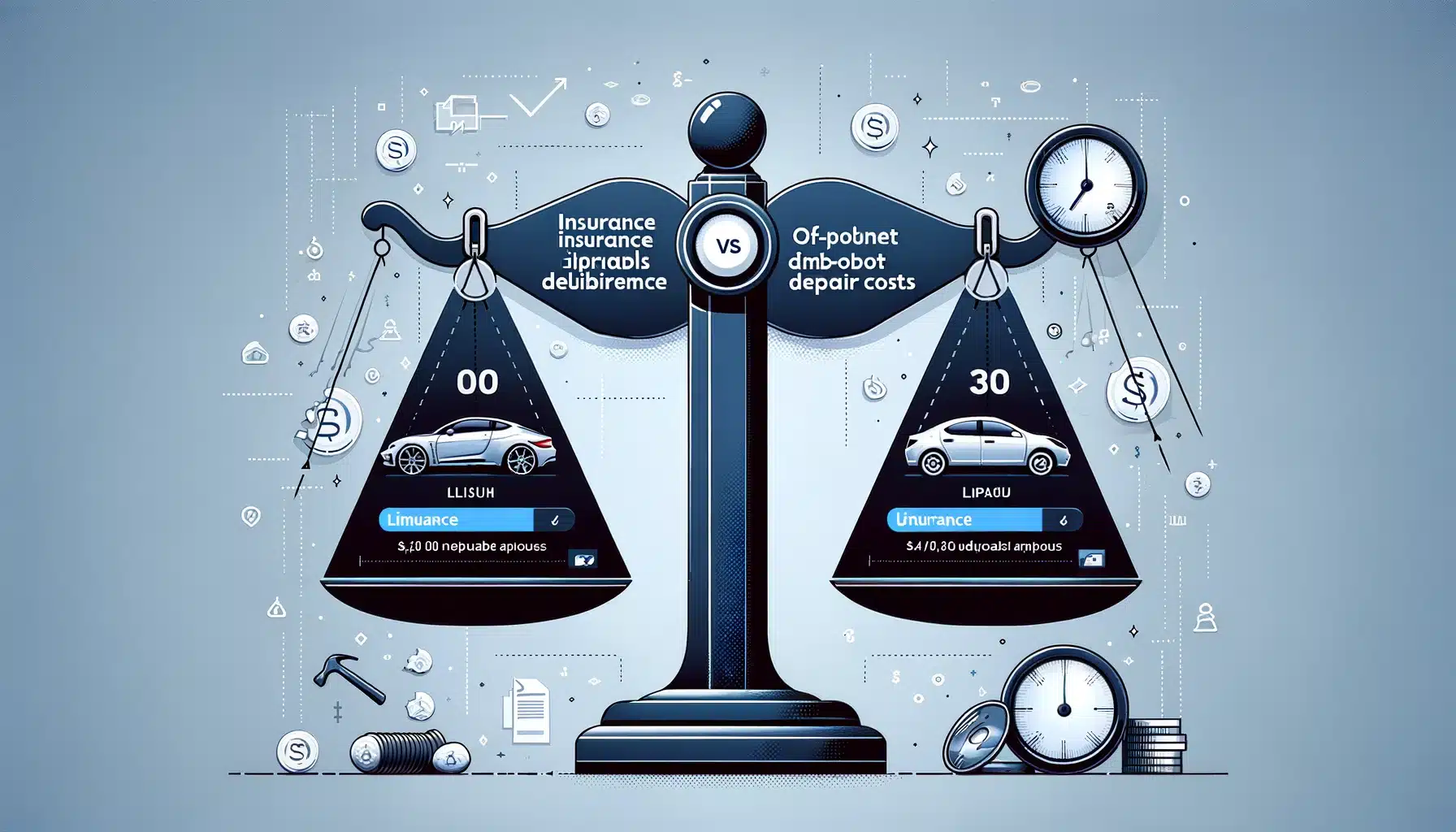Deciding to file an insurance claim for minor damage? This guide offers key insights to navigate the impact on premiums and make informed choices.
Introduction: Insurance Claim for Minor Damage
Deciding whether to file an insurance claim for minor damage is a common dilemma. Balancing the risk of higher premiums against the cost of repairs is crucial.
Deciding to file an insurance claim involves more than a simple yes or no. It’s a nuanced decision that can have long-term implications on your insurance premiums and policy standing. Whether it’s a small dent in your vehicle or a minor water leak in your home, the question remains: is it worth reporting to your insurance company?
Navigating the decision to file a for minor damage claim after minor damage can feel like walking a tightrope. With the potential for increased premiums on one side and out-of-pocket expenses on the other, this guide illuminates the path to making informed choices that safeguard your financial well-being without compromising your coverage.

FAQs:
Q: What is considered ‘minor damage’ in insurance terms?
Minor damage typically refers to any harm that doesn’t impair the functionality or safety of the insured item. For vehicles, this could be cosmetic damage like scratches or small dents. For homes, it might be superficial damage to a fence or door.
Q: How can filing a claim affect my insurance premiums?
The impact on your premiums can vary. A single claim might not cause a significant increase, but multiple claims over a short period can signal to insurers that you’re a higher risk, potentially leading to higher premiums.
Q: Is it advisable to pay out of pocket for minor damages?
If the repair cost is less than your deductible, it’s financially sensible to pay out of pocket. This approach avoids potential premium increases and preserves your no-claims discount, if applicable.
Q: When should I file a claim for minor damage?
It’s crucial to file a claim if another party is involved or if there’s a risk of the damage worsening over time. Your liability coverage and policy terms can guide this decision.
Q: How can I make an informed decision on whether to file a claim?
Consider the extent of the damage, your deductible, the potential impact on your premiums, and the specifics of your insurance policy. Consulting with your insurance agent can also provide clarity.
Preventive Measures:
Taking steps to prevent minor damages can save you from the dilemma of deciding whether to file a claim. Regular maintenance of your property, defensive driving, and investing in protective gear can mitigate the risk of minor incidents.
Case Study: The Costly Scratch:
John decided against filing a claim for a small scratch on his car, fearing a premium hike. Over time, the scratch led to rusting, requiring extensive repairs. Had John filed a claim initially, his insurance would have covered the cost with minimal impact on his premiums.
Additional Insights:
The Role of an Emergency Fund in Handling Minor Damages:
An often overlooked aspect of financial planning is the role of an emergency fund. Having savings set aside specifically for unforeseen incidents, including minor damages, can provide you with the flexibility to cover repairs without immediately resorting to an insurance claim. This financial cushion can be a strategic tool in managing minor incidents cost-effectively.
Navigating Insurance Claims for Minor Damages: A Step-by-Step Approach
- Assessment: Carefully assess the extent of the damage to determine if it’s truly minor.
- Cost Analysis: Obtain repair estimates to compare against your deductible.
- Policy Review: Understand your policy’s terms, especially regarding how claims might affect your premiums and coverage.
- Consultation: Discuss your situation with your insurance agent to gauge the potential impact of a claim.
- Decision: Weigh the short-term benefits of filing a claim against the long-term implications on your insurance standing.
Conclusion:
The decision to file an insurance claim for minor damages requires careful consideration of both the immediate and future implications. By thoroughly assessing the situation, consulting with professionals, and understanding your insurance policy, you can make informed choices that safeguard your financial well-being. Remember, the right decision depends on your unique circumstances, and when in doubt, professional advice can be invaluable.
